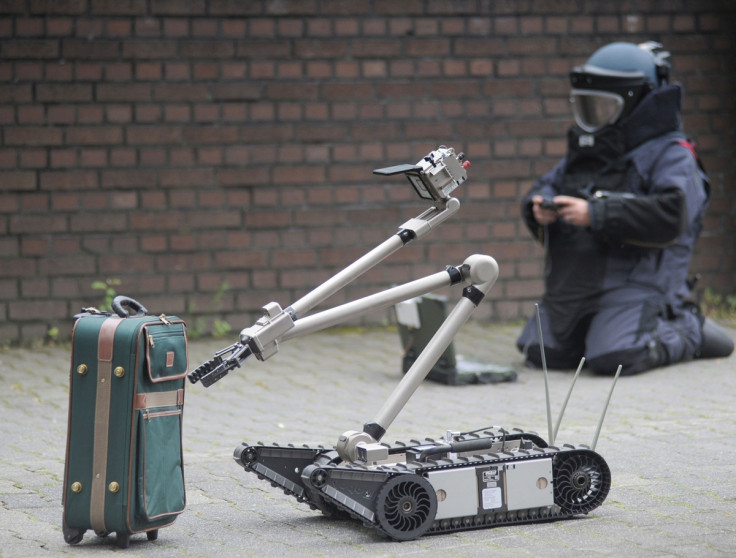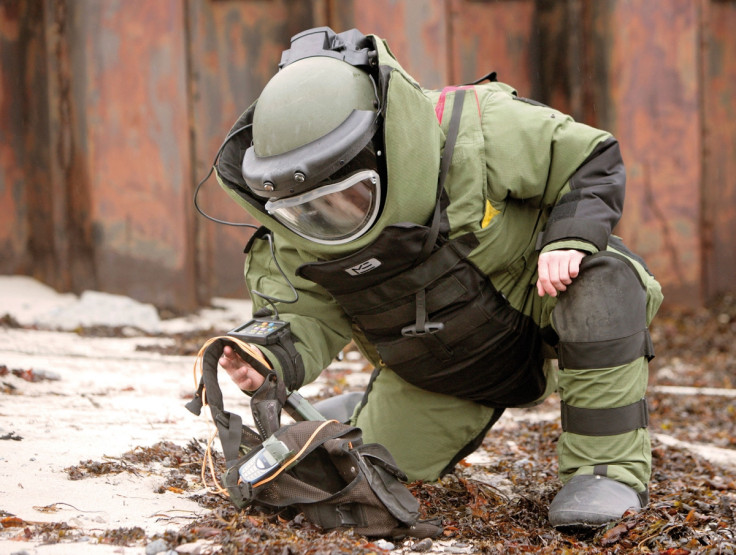Germany developing robot that inspects suitcases and 'sees' bombs inside them

German researchers have developed a robot that is able to look at a suspicious suitcase and instantly tell whether there might be a bomb inside it, thus taking away the need for emergency services and police to get close to danger zones.
Researchers from the Fraunhofer Institute for High Frequency Physics and Radar Techniques FHR in North Rhine-Westphalia, Germany have spent 14 months developing special sensors for military grade robots that can be remotely-controlled by bomb disposal engineers from a safe distance.
The sensors provide the robot with the ability to monitor its environment to make a full 3D survey of the crime scene, while its high-resolution digital camera takes photos. At the same time, a millimetre wave scanner scans the suspicious object and creates 3D images of what's inside.
Then all of the data collected is sent via the embedded computer on the robot back to the laptops of the bomb disposal engineers so that they can assess the danger, which not only keeps first responders safe from suspicious items that could blow up at any time, but also makes it faster to gather information and make crucial decisions.

"Up to now our techniques have not allowed us to form a 3D outline of suitcase bombs, and it has been impossible – or only partially possible – to make a spatial map of the contents. With the sensor suite we can visualise in three dimensions what's inside a luggage item, and so determine the composition of the bomb and how the parts are arranged in the luggage," explains Stefan A Lang, team leader at the FHR and the project's coordinator.
"For the [millimetre scanner] radar we make use of the synthetic aperture radar (SAR) principle, by which the sensor is moved along a trajectory, a kind of track – from left to right in front of the case, for example – and the Doppler information generated in the process is used to create an image."
Fraunhofer has been working on the system together with the North Rhine-Westphalia State Office of Criminal Investigation, the Leibniz University in Hannover, ELP GmbH and Hentschel System GmbH, with expert advice provided by the German Federal Office of Criminal Investigation in Wiesbaden and the German Federal Police Force.
A demonstrator version of the radar sensor suite will be ready in April and extensive field tests of the technology will start from mid-2017, with the aim of launching the technology in 2019. The idea is for the sensor suite to be clipped onto military grade robots, which are already in use around the world, such as the iRobot PackBot.
© Copyright IBTimes 2024. All rights reserved.






















